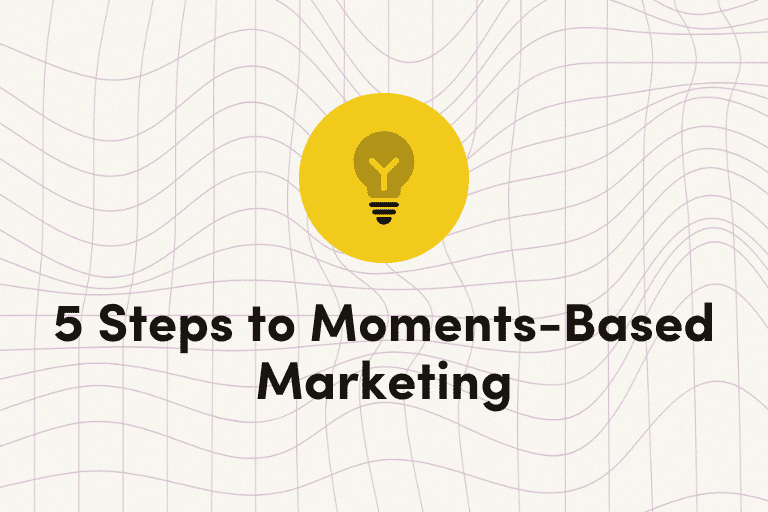In this ongoing series, we’ll be “unboxing” must-have digital marketing campaigns and programs vital to success. In this installment, we’ll take a look at referral programs, often known as “refer-a-friend” or advocacy campaigns.
Who Are Your “Advocates” and What Is Advocacy?
In Customer Relationship Marketing lingo, your “advocates” are your best, most informed, most loyal customers. They’ve completed the journey to becoming your customer and understand your products and services. They know and trust you. Most of all, they’re your source of referrals.
Advocacy is the process by which these best customers will recommend and refer you to new prospective customers.
Traditionally, referrals occurred mostly by word-of-mouth and still do, but in the digital age channels—like social media, email and mobile—grease the skids by making referring easy and effortless, if not organic.
All it takes is a few minutes to forward an email to a friend or share on social and “word-of-click” becomes a prime opportunity you can leverage intentionally.
Here’s why if you don’t have an advocacy program already, you should.
Asking for an Intro to Their Friends
Despite how easy and impersonal “word-of-click” can be, referrals are a personal, considered process, and we would do well to design advocacy programs and campaigns that support them with a strong human (vs. decidedly tech) touch.
A successful referral program isn’t just about using your existing customers to gain new leads. It’s really about asking your best customers to make introductions—to their closest friends and family members, the people they care most about—on your behalf.
Just as in business networking and personal social circles, we’re not going to make introductions willy-nilly to just anyone.
On the other hand, when we are personally introduced to a prospective employer/ee, friend, or dating partner by someone we know, like and trust, we’re going to give greater consideration to the referral.
So, it’s important to be selective in terms of which customers you ask for referrals, and who you ask to be referred to.
With 74% of consumers identifying word-of-mouth as a key influencer in purchasing decisions and 92% of people ages 18 to 34 saying that they seek recommendations from friends and family before making a purchase, referral marketing is an integral component of today’s marketplace—and one that can yield impressive results if the right tactics are employed.
To be clear—our focus here is on intentionally designed and orchestrated referral campaigns— rather than on naturally-occurring social sharing, most of which is un-incentivized and not easily trackable.
So even though social media is a channel designed around organic, spontaneous sharing and connection, most marketers will rely more heavily on email than social to kick-off referral campaigns and maximize customer reach, with mobile app and/or web pages supporting implementation, and social media playing (if anything) a supporting role.
So, let’s take a deeper dive into their four essential ingredients! Want even more advanced tactics? Download our latest guide, Unboxing Must-Have Marketing Campaigns: Referrals & Advocacy.
4 Essential Ingredients for a Successful Referral Program
1. Be clear, honest and transparent
When it comes to asking customers for referrals, don’t beat around the bush. Just ask! Be clear what it is you’re asking them to do and the data you’re asking them for.
Now more than ever, people are skittish about sharing their own information, let alone the email addresses and contact points of their friends.
Lower any resistance or hesitation to your referral program by being upfront and honest about the entire process and shepherding your advocates through it.
What data do you need (maybe just an email address) to collect to execute the referral offer? How will that data be used? Will it be retained and if so, why? How will incentives be received? Rewards for referrals given? Your messaging should spell it all out.
The campaign below from online brokerage firm TD Ameritrade does a good job of this.
The email specifically explains how to get started, what the reward is for the referring customer, what the incentive is for the prospective new customer, how incentives/rewards will be paid, and so on.
Furthermore, it requires customers to log into their account to make referrals, enabling the brand to track and limit customer actions.


TD Ameritrade “Refer a Friend” Email
2. Know what motivates action
This goes beyond understanding your existing customers: it’s about truly understanding the journey from prospect to customer and all the inflection points on it so you can use the best incentive possible to motivate new prospective customers (the “referred”) to the moment of truth—engaging with you!
If your incentive isn’t juicy enough, your campaign might never gain enough lift to get off the ground. A good incentive will provide some type of desirable reward for your existing customers while also casting them in a positive light by granting an often-more-lucrative incentive to the new customers they refer to you.
Consider what motivates people to buy or inquire in the first place, and design a program that speaks to what newcomers really want. Chances are, your new email subscriber or new customer welcome offers can be repurposed as an incentive to entice the newly-referred to convert.
Sometimes recognition, such as being featured on the website or in an ad or blog post, can be equally as attractive as financial and promotional incentives.
Here’s a great example of a referral campaign that doesn’t lean on hard offers or discounts as rewards. It’s for Starwood Hotels’ timeshare program (Vistana) owners who, because they are also hotel loyalty program members, love points!


Vistana’s Ultimate Vacation Experiences Sweepstakes
The incentive for newcomers is entry into a sweepstakes to win one of four different vacation trips, but owners are perfectly happy with getting a nice bump in their points balance.
Understandably, the incentive for new prospective owners is much more lucrative than for current owners since they need more motivation and are being asked for a much greater response and, ultimately, purchase.
3. Reward customers for referring
As we just examined, you’ll need to not only motivate the friends that customers refer to convert, but also motivate your customers into making referrals in the first place. Incentives are key to getting both customers and prospects to take action.
Of course, your true customer advocates know and love you enough to spontaneously share and refer, but if you really want to move them into action, reward them for their efforts!
Besides, rewards are a fantastic way to show your appreciation for their loyalty, which only strengthens customer relationships and brand equity.
The good news? Your customers are already favorably predisposed to your products and services (or they wouldn’t be your customers), so often some free product/service alone is an effective reward, as we see in the Airbnb example below.


Airbnb “Invite Friends” Email
If your customers transact with you on a weekly or monthly basis, then it makes sense to incentivize referrals with account credits, loyalty program points, or discounts towards future purchases.
But…if your customers purchase from you less than a few times per year, that reward won’t carry the same weight. In fact, it might send signals that you don’t really understand their lifecycle.
For example, a $20 discount for referring a friend to Uber Eats in the message below makes sense.


Uber Eats Referral Campaign
But if GE gave their customers a $50 credit towards the purchase of their next dishwasher, chances are their customers wouldn’t be very motivated to make referrals. After all, how often does one buy major appliances?
So, what’s the right approach? If your customers transact only a few times during their lifecycle, you need to reward them with something of immediate value. Providing access to yet-to-be-released products can work, but cash and gift cards are virtually foolproof.
In fact, a Nielsen Harris Poll found that 77% of Americans prefer to be rewarded for referrals with money.
Here are a few more things to keep in mind about customer rewards:
- Rewards can be dependent upon or independent of friend response. Airbnb only rewards customers for referrals of people who become new Airbnb customers (they purchase/book/convert), logically making tracking of prospect conversions essential. Other referral programs simply ask for link or name sharing and reward for leads or traffic alone.
- Just as you’ll have offer terms, conditions and deadlines for regular promotions, you should spell them out for referral campaign offers. Most referral campaigns are issued with a specific deadline, as in the Uber Eats example that follows.
- For referral program success, marketers must give customers a relevant reason to send referrals today. If referral incentives fail to provide immediate, tangible value, then your program will flop.
4. Enable and track the process
By now it should go without saying that referral marketing requires more than just outbound email campaigns and invitations sent to your customers—they are entire programs with backends that need to be thought-out and carefully planned.
With incentives and rewards a must, tracking is paramount. But even without them, you’ll need to think through how referrals will be made, recorded, limited and executed. Otherwise, how will you measure the success of your program?
Some of the best programs use dynamically-generated links and codes unique to each customer. This allows you to track customer actions across channels, and friend redemptions alike.
The campaign from HotelTonight below illustrates how this might look.


HotelTonight “Friends With Benefits” Campaign
Others, like the campaign for Bombas, direct customers to landing pages which allow them to enter the email addresses of friends and even personalize subject lines and messages.


Bombas Refer-a-Friend Campaign


Bombas Landing Page
If that’s your approach, be sure that your brand/company is the sender of the email—don’t count on your customers to forward messages for you.
In any case, ideally, you’ll hand-hold your valued customers through the process of providing friend information and sharing via their channel of choice. Do not leave them guessing how you want them to refer for you!
Wrapping Up Referral Campaigns
With a well-built referral program, you can actually increase brand loyalty among existing customers while simultaneously growing your customer base through referral traffic.
Done right, advocacy campaigns are a win-win and an economically-efficient customer acquisition strategy.
Go beyond the basics and download our full guide to learn more strategic considerations to ensure the success of your referral program, including how to define performance goals, set healthy boundaries and more!
































